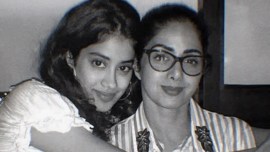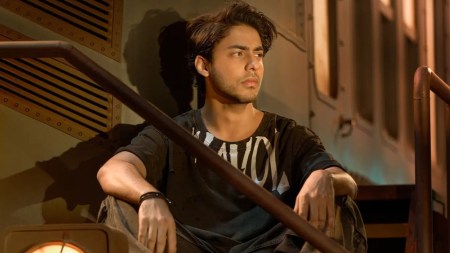Despite the passing of a decade since it came out, director Anjali Menon’s Bangalore Days remains one of those rare movies that non-Malayalees identify with the Malayalam film industry. The irony here, however, is that the coming-of-age romantic comedy is almost nothing like the films the industry had produced until that point, with its aesthetics, treatment and characterisation deviating significantly from the norm, and the only similarity with its predecessors being the focus on human emotions and interpersonal relationships.
Though Malayalam cinema has created countless movies on the unwavering bond people share, what made Bangalore Days stand out immediately was its focus on the relationship between — not friends, not siblings, but — three cousins. Despite Indians having a penchant for living in joint families and boasting about the same, movies that explore the intimacy between cousins have been a rarity and Bangalore Days pretty much gifted the Indian audience something they didn’t know they needed.

Cinema Anatomy | Once not adept in comedy, Mammootty tirelessly chiselled himself, bringing to screen the iconic Kottayam Kunjachan, Rajamanikyam and more
Revolving around three cousins — Arjun aka Aju (Dulquer Salman), Divya Prakash aka Kunju (Nazriya Nazim), and Krishnan aka Kuttan (Nivin Pauly) — who have been a part of each other’s journeys through thick and thin since childhood, Bangalore Days was not just a bowl of hot soup/khichdi/kanji for many; it also served as a wake-up call for them to get back in touch with their estranged cousins and recall, reinstate or ridicule those promises they made as kids. In this trio’s case, the promise was to go to Bengaluru and have a blast, and fate did indeed listen to their prayers after all as Aju, Kunju, and Kuttan finally ended up in the city together. While Aju had already been living there, Kunju moved to the city with her husband following their marriage, and Kuttan got his first job there. Another factor that immediately endeared the movie to many, especially Malayalees, was the choice of the city, Bengaluru. Being just an overnight journey away, even for those living in the southernmost part of Kerala, Bengaluru continues to be a major getaway spot, besides the hundreds who have already migrated to the city for education or jobs and made it their second home. With writer-director Anjali managing to turn the city into a character itself in the movie, Bangalore Days exuded a unique charm that not many Malayalam films set outside Kerala had.
At the same time, unlike similar movies where the central group usually comprises members of the same gender (mostly men), Bangalore Days featured a woman at its centre, who served as the glue that kept the clique intact. Adding to the film’s charm, Kunju was not reduced to just a side character inserted to ensure female representation, nor was she the typical eccentric, flat character often found in such movies, especially when there’s more than one male lead. Though initially naive due to a protected upbringing and her age, Kunju develops into a neatly well-rounded character with a proper life journey, amplified by her husband Shivadas’ (Fahadh Faasil) dual life as he’s yet to recover from the death of his deceased former girlfriend Natasha (Nithya Menon).
 Dulquer Salman, Nivin Pauly and Nazriya Nazim in Bangalore Days. (Images: Bangalore Days/Facebook)
Dulquer Salman, Nivin Pauly and Nazriya Nazim in Bangalore Days. (Images: Bangalore Days/Facebook)
Anjali also managed to provide the three with unique characteristics and paths, without one mirroring the other in any manner. Despite growing up together, Aju, Kunju, and Kuttan weren’t portrayed as sharing any similarities in their natures, but as the movie progressed, it subtly showed each of them acquiring certain necessary life skills from the other. While Aju learns from the other two to accept love and stop running away from life, Kunju discovers how to pursue her dreams and not be weighed down, and Kuttan realised that it is important to let things go, thus giving the narrative a sense of closure and highlighting the beauty of their journey together.
Despite revolving around a bunch of youngsters, Bangalore Days did not just focus on their exuberance and the sparkle of the city. Instead, all the characters were depicted in an honest manner, throwing light on their emotional struggles too as they were all fighting the demons of their past and/or present. Interestingly, the film did not provide alpha behaviour to even a single character, thus providing them ample space to be vulnerable and work their way through their derailed states, and that too with help from their dear ones, making their gradual recovery even more endearing.
Watch Bangalore Days trailer here:
While Aju is depicted to have grown up in a dysfunctional family under the thumb of an army officer dad, Kunju’s dreams of living a peaceful life after spending a lifetime with ignorant parents are shattered as she enters a loveless marriage with a man who is still reeling from his ex-girlfriend’s death. Kuttan, on the other hand, struggles to find a space or person he can call “home” except when he is with his cousins. Shivadas, following Natasha’s tragic demise, has holed up and withdrawn into isolation, surrounded only by her memories. Aju’s love interest Sarah (Parvathy Thiruvothu), a paraplegic RJ, grapples with the overwhelming expectations of her mother, who seems determined to prove to the world that her daughter is capable of anything despite her limitations. Thus, Bangalore Days presented a vast array of characters, whom many could relate to in one way or the other, resonating with a large section of the viewers. At the same time, the film also did justice to all of them by providing substantial arcs and a happy ending, eventually putting a smile on everyone’s faces.
One of the very few Malayalam films to feature a person with a disability as one of the central characters and yet not depict their story as inspiration porn, Bangalore Days’ handling of the character Sarah too was indeed refreshing. Depicted as a person yearning to lead a normal life, basking in the love of someone who likes to “walk beside her and not behind her,” while wrestling with pressure from her mother, the movie shed light on a different kind of struggle she faces. The film’s handling of a modern-day marriage, between Kunju and Shivadas, too was novel as it did not let the gender hierarchy come into play, but also made sure that it highlighted how men get to enjoy the privilege of leading a dual life while leaving the person they voluntarily invited into their life hanging.
 Fahadh Faasil, Nazriya Nazim, Nivin Pauly, Paris Laxmi, Dulquer Salmaan and Parvathy Thiruvothu in Anjali Menon’s Bangalore Days. (Images: Bangalore Days/Facebook)
Fahadh Faasil, Nazriya Nazim, Nivin Pauly, Paris Laxmi, Dulquer Salmaan and Parvathy Thiruvothu in Anjali Menon’s Bangalore Days. (Images: Bangalore Days/Facebook)
Nevertheless, having mentioned all that, it can never be said that Bangalore Days is a 5/5 movie devoid of any issues. As much as it is an entertaining watch, elevated by stellar performances from Fahadh, Nivin, Nazriya, Dulquer, and Parvathy, apart from supporting actors like Kalpana, Maniyanpilla Raju, Vijayaraghavan, Prathap Pothen, and Praveena, the movie is set against an elite backdrop wherein a bunch of privileged folks endure first-world problems when the environment is placed in the larger structure. In the initial scenes themselves, Anjali establishes that they are well-off and upper-caste Hindus, thus un/consciously emphasising that they won’t have to deal with any societal problems. Appallingly, the film does not feature even a single non-elite character even as a passing reference. At the same time, Anjali’s obsession with the “good old days,” revolving around a Nair tharavad (ancestral home), which she portrayed elaborately in her debut feature Manjadikuru, crops up here too, through Kuttan, the narrator.
On the other hand, despite managing to do justice to other women on screen like Kunju and Sarah, the writer-director’s handling of the character of Kuttan’s mother, played by an exceptional (late) Kalpana, was nothing short of bothersome. Though she’s depicted as a person devoid of compassion towards her family, especially her son and husband, a closer look at the role would make one realise that she’s just ambitious after having spent all her life in the confinement of her home. After wasting a lifetime, not having any social life or identity or chances to see the world, when she begins taking steps in this regard, the movie starts portraying her as an empathetic character and reduces her to a mere joke. While Kuttan’s father (Vijayaraghavan) flees to “live his life to the fullest,” escaping from the “clutches” of his “perpetually complaining” wife, leaving behind all his responsibilities, he becomes a hero and an inspirational figure. However, when the mother, following her husband’s eloping, suggests to Kuttan to take her with him to Bengaluru, makes friends with the women living in Kuttan’s apartment complex, playing games and chitchatting, plans to move to the US to live with her daughter, Kuttan’s sister, she is looked down upon as if implying that responsibilities matter only if you are a woman.
Disclaimer: The copyright of this article belongs to the original author. Reposting this article is solely for the purpose of information dissemination and does not constitute any investment advice. If there is any infringement, please contact us immediately. We will make corrections or deletions as necessary. Thank you.







